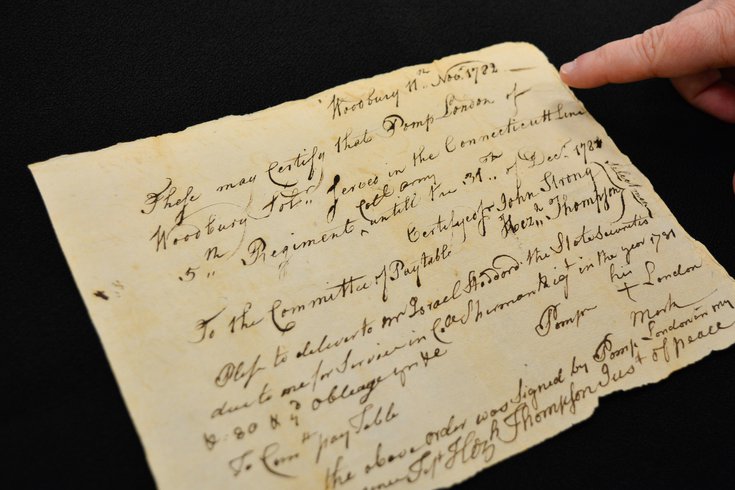February 14, 2023
From the Philly Voice: “Contributions of Black, Indigenous soldiers detailed in new collection at Museum of the American Revolution”
(Thank you, maggie@phillyvoice.com for this great article)
Nearly 200 historic documents are being digitally archived for public use. Several are on display as part of the Black founders exhibit, including a discharge paper signed by George Washington

The Museum of the American Revolution is partnering with Ancestry to digitize its Patriots of Color archive, which features nearly 200 rare documents bearing the names and stories of Black and Native American soldiers who served in the Continental Army during the Revolutionary War.
Excerpts
The Patriots of Color archive will be fully digitized and made available online at no cost to the public thanks to a partnership with the genealogy website Ancestry, museum officials said Friday. The Old City museum acquired the documents in 2022 from a private collection, following contributions from several donors.
“At least 5,000 men of color fought in the Continental Army, but their stories aren’t as known as they should be,” said R. Scott Stephenson, president and CEO of the museum. “This archive allows us to explore the extraordinary lives of men who helped to secure independence, yet who have not received the recognition they deserve as American Founders. We are thrilled to have the opportunity to partner with Ancestry to share these rich human stories with the world.”
The documents include Continental Army records related to Jeffrey Brace, who chronicled his life from enslavement to freedom in the 1810 memoir “The Blind African Slave.”
Brace, born in Africa, was not seized by enslavers until he was about 16 years old. He was shipped to Barbados, where he was treated brutally by an English seaman. He fought in the Seven Years War and was purchased by “widow Stiles” in Woodbury, Connecticut in 1768.
The widow taught Brace to read, and he served in the Continental Army. After being discharged in 1783, he was freed by Stiles’ son. His nickname — Pomp London — appears on several documents in the archive. Several years ago, Rhonda Brace, one of Brace’s descendants, visited the home in Woodbury and the descendants of the family that once enslaved her grandfather, six times removed.
“They actually brought us down, my dad and I went — my mother wouldn’t go — we went down to what they believe were the slave quarters in the house,” Brace said. “That was very, yeah … But it was something just to be on the property.”






